試す 金 - 無料
Roger and out
BBC Music Magazine
|September 2022
As a leading pioneer of the period performance movement, Roger Norrington has transformed how we hear composers from Bach to Mahler. As he retires, he shares his memories with Julian Haylock

On 18 November last year at Sage Gateshead, Roger Norrington left the concert stage for the final time. A programme devoted to his favourite composer, 'Joe's the guy' Haydn, brought the curtain down on an illustrious career that had totally changed the way we listen to music. Thanks largely to Norrington's benign radicalism, we now take almost for granted historically accurate orchestral layouts, authentic instruments and playing techniques, flowing tempos, aerated textures and senza vibrato (without vibrato, 'that wobbly stuff').
Looking back 60 years to when it all began with the Schütz Choir and London Baroque Players, I wonder whether Norrington had always seen himself as a musical crusader. 'In fact, I really didn't have any idea where it was going to go,' he smiles. 'I was 28 when I formed the Schütz Choir, and at that point I was thinking in terms of being a busy amateur musician conducting, singing and playing. There was absolutely no thought of my building a career out of it. My formative musical experiences included seeing Furtwängler and Beecham conduct just after the War, and singing under Klemperer. I happily accepted all those slow tempos - indeed, I thought they were really rather wonderful!'
Then he discovered Schütz quite by chance and began researching everything he could lay his hands on. Almost as a bit of a gas,' he recalls, 'in 1962 we put on an all-Schütz concert at St Bartholomew's London, and to my amazement and delight it was very well received by the critics. Over the next ten years we performed a vast quantity of early music, much of which had no central performing tradition associated with it - so we had to invent one!'
このストーリーは、BBC Music Magazine の September 2022 版からのものです。
Magzter GOLD を購読すると、厳選された何千ものプレミアム記事や、9,500 以上の雑誌や新聞にアクセスできます。
すでに購読者ですか? サインイン
BBC Music Magazine からのその他のストーリー
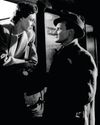
BBC Music Magazine
Picture perfect
What are the best ever uses of classical music masterpieces in film? From heartbreaking love stories to apocalyptic visions, we select our top 12
9 mins
September 2025

BBC Music Magazine
Richard Morrison
Thomas Hardy's dark poems are a vital record of a rich musical past
3 mins
September 2025

BBC Music Magazine
Mark Kermode
Film Critic, Broadcaster
4 mins
September 2025
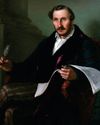
BBC Music Magazine
Donizetti's opera comes to a bloody end as sopranos scrap
Nineteenth-century opera is packed with scenes of fiery confrontation, from the red-hot love entanglements in Bizet’s Carmen to the apocalyptic clashes between gods, demigods and humans in Wagner's Ring cycle. Few, though, are fierier than the convulsive episode Gaetano Donizetti placed at the heart of his opera Maria Stuarda, as he readied it for presentation at the Royal Court of Naples in 1834.
3 mins
September 2025

BBC Music Magazine
Cold comfort
In the late 1980s, British pianist James Kirby braved cold, hunger and totalitarian rule to study in Moscow. Here he shares his memories with
8 mins
September 2025
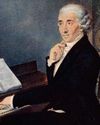
BBC Music Magazine
THE MAGNIFICENT SEVEN
Pick a theme... and name your seven favourite examples
3 mins
September 2025
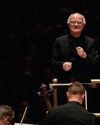
BBC Music Magazine
Man of the World
Though many may think of John Rutter as being the most British of choral composers and conductors, his huge popularity in fact spreads right across the globe,
7 mins
September 2025

BBC Music Magazine
Concert Heaven Concert Hell
Top artists recall their best and worst performances
3 mins
September 2025
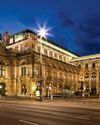
BBC Music Magazine
Vienna Austria
If you're a classical music lover and you haven't been to the Austrian capital, it is definitely time you paid a visit, enthuses
3 mins
September 2025
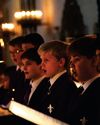
BBC Music Magazine
Learning the notes
Unique to the British cultural scene, chorister schools can offer often educational opportunities that are hard to match, writes
6 mins
September 2025
Translate
Change font size
